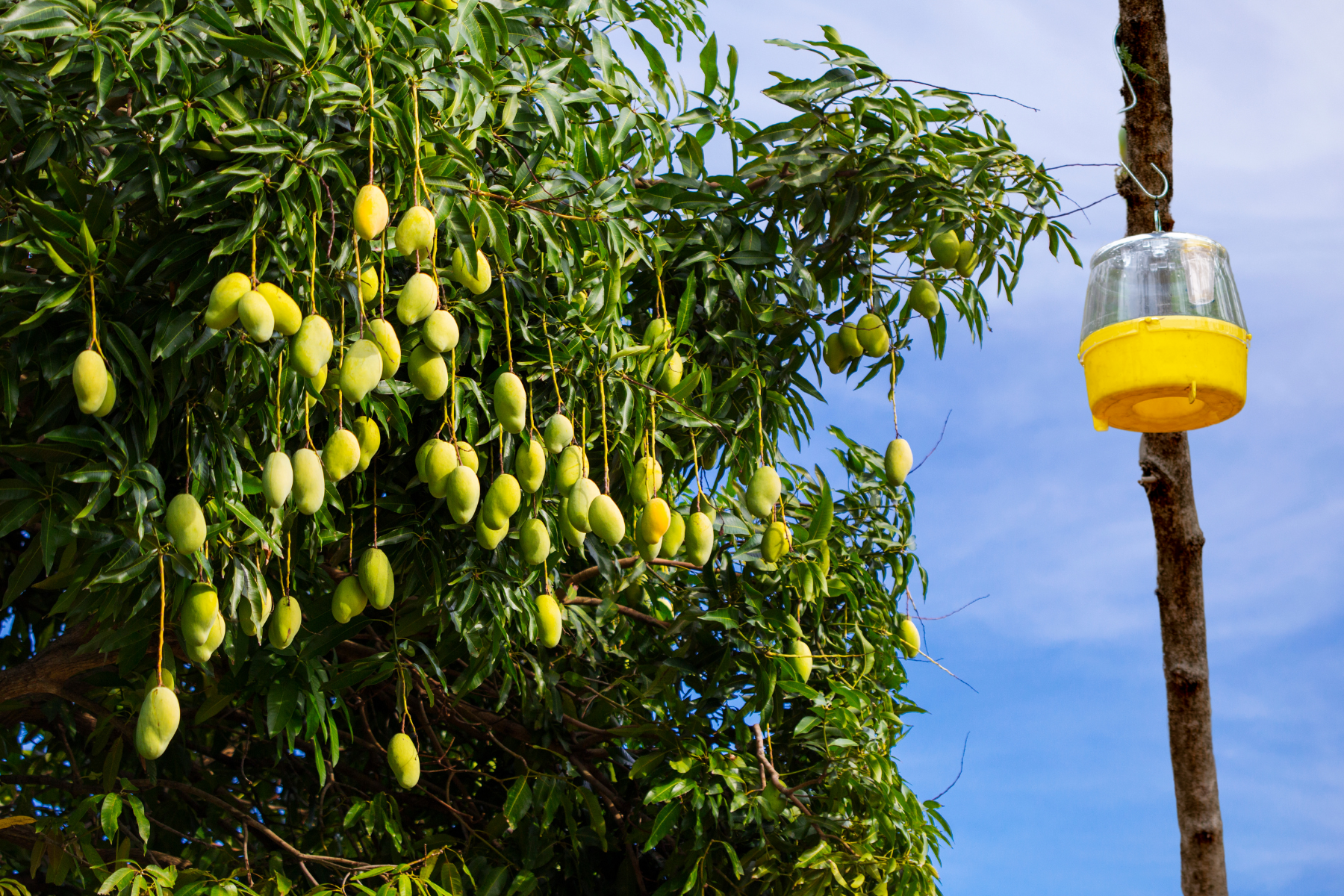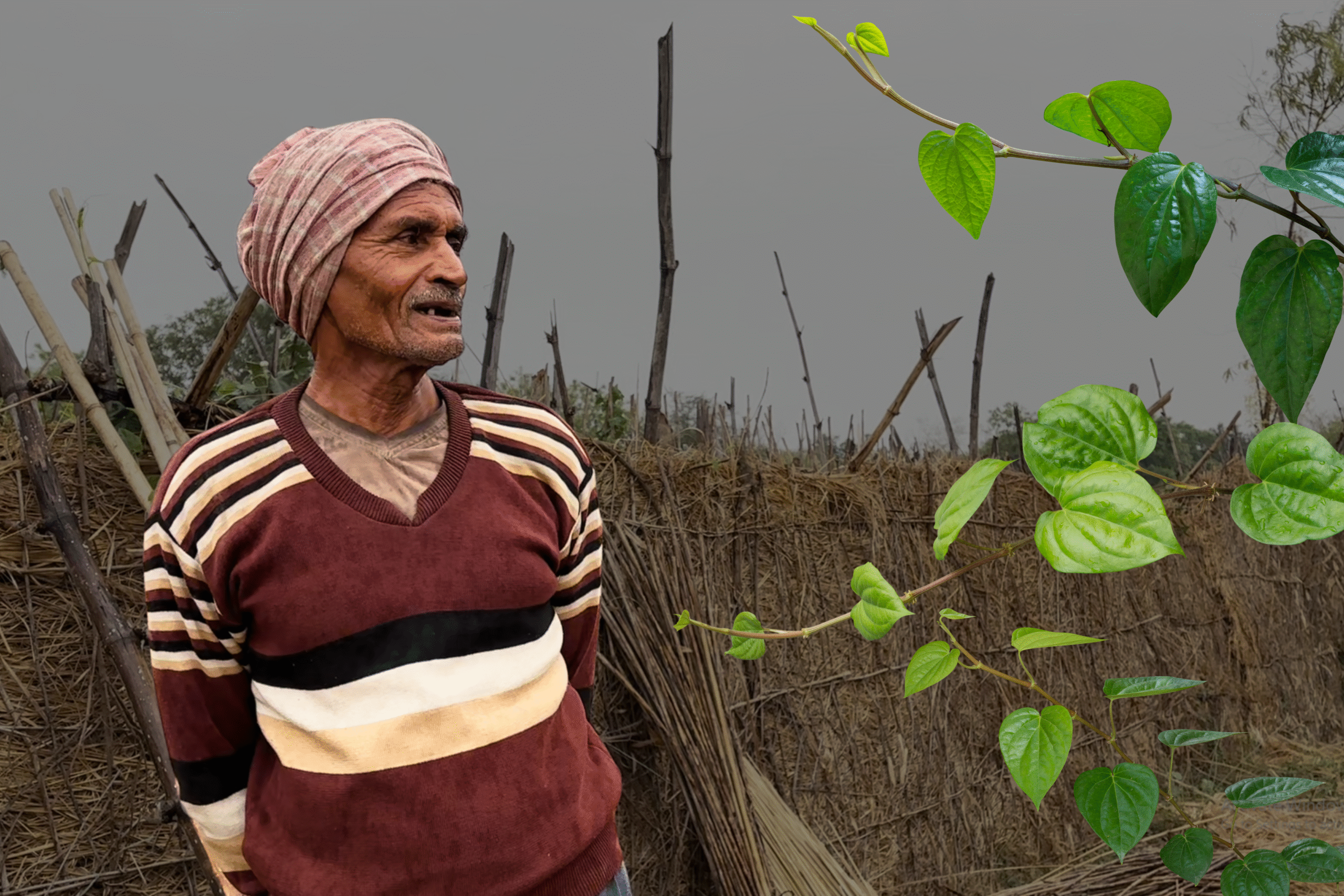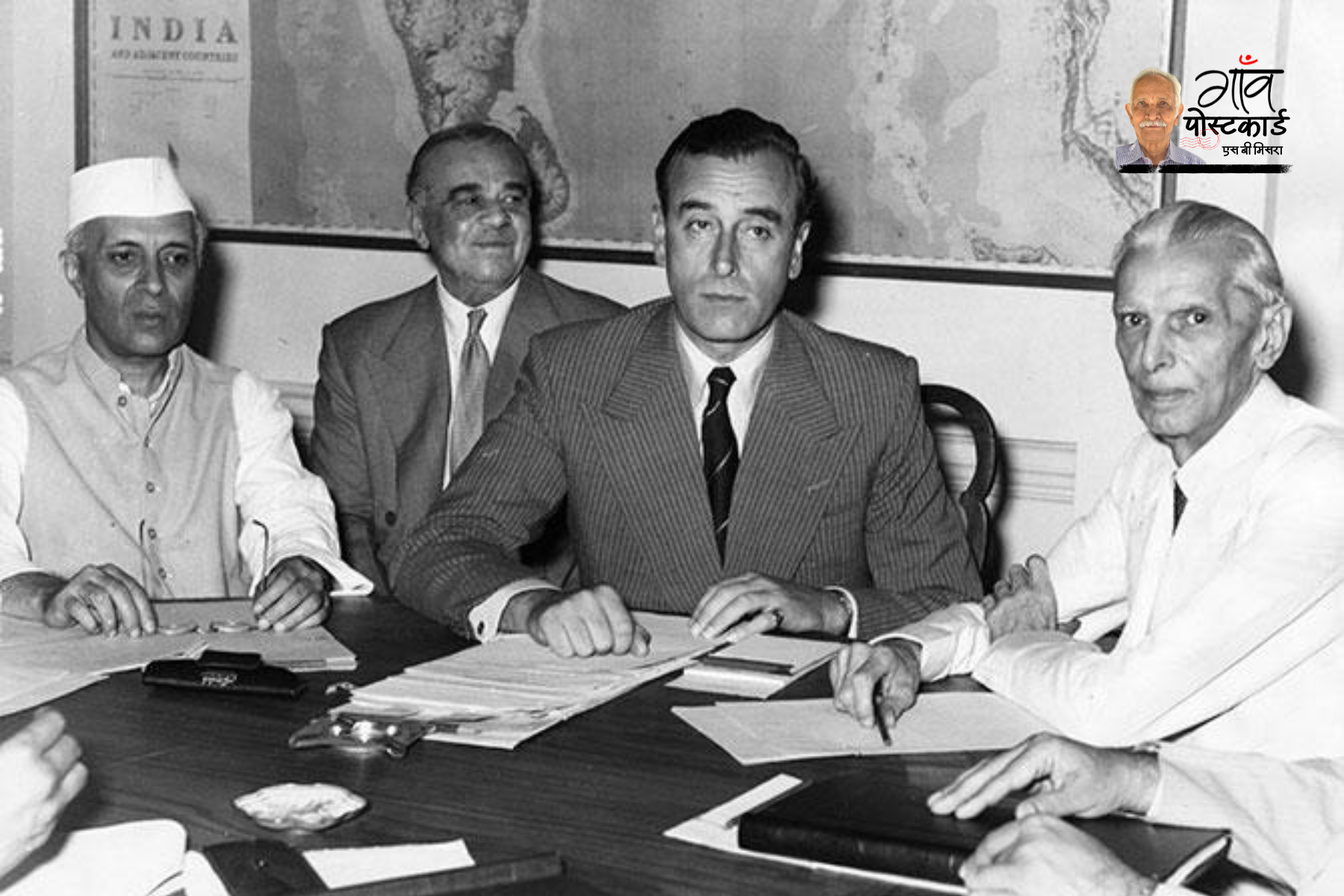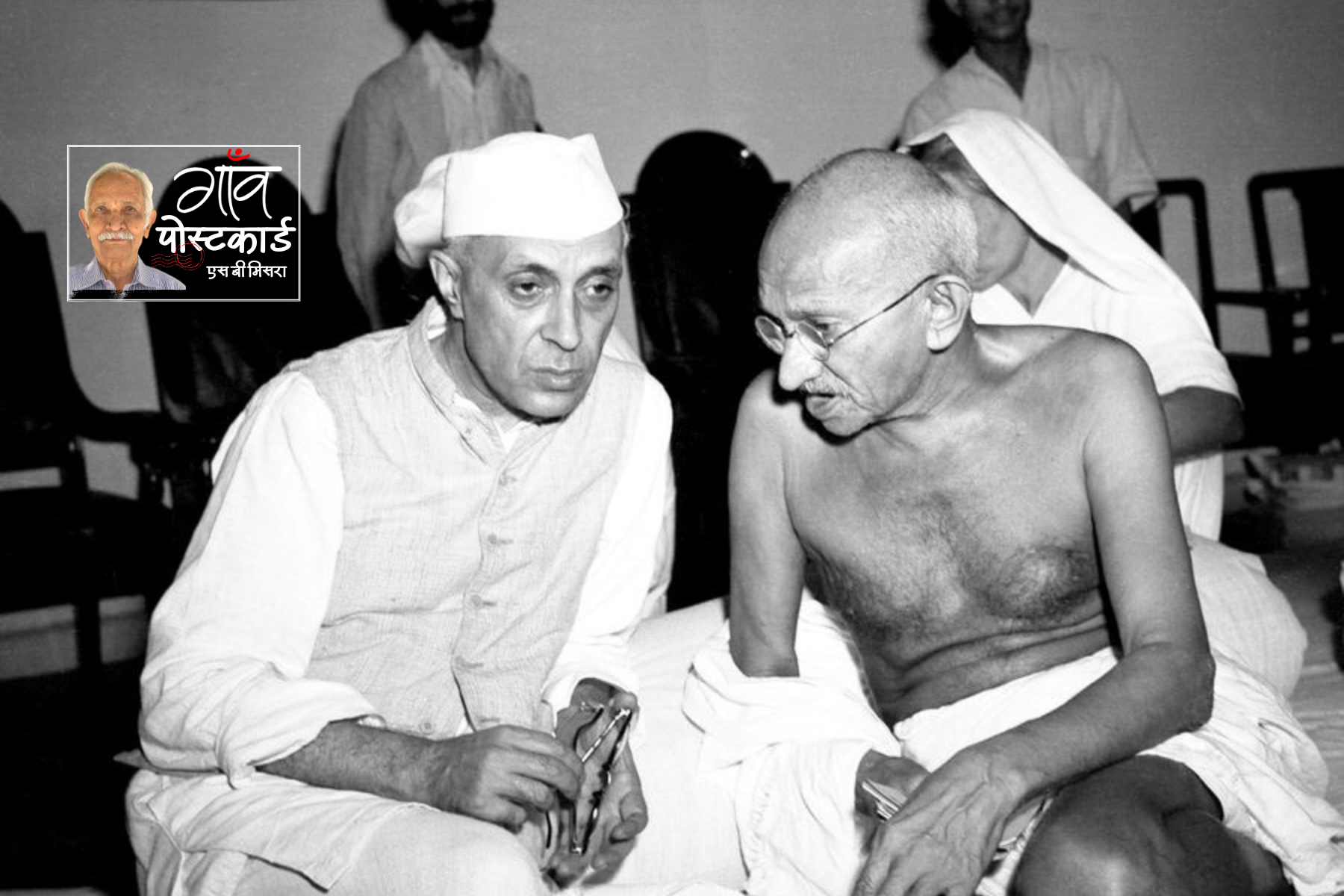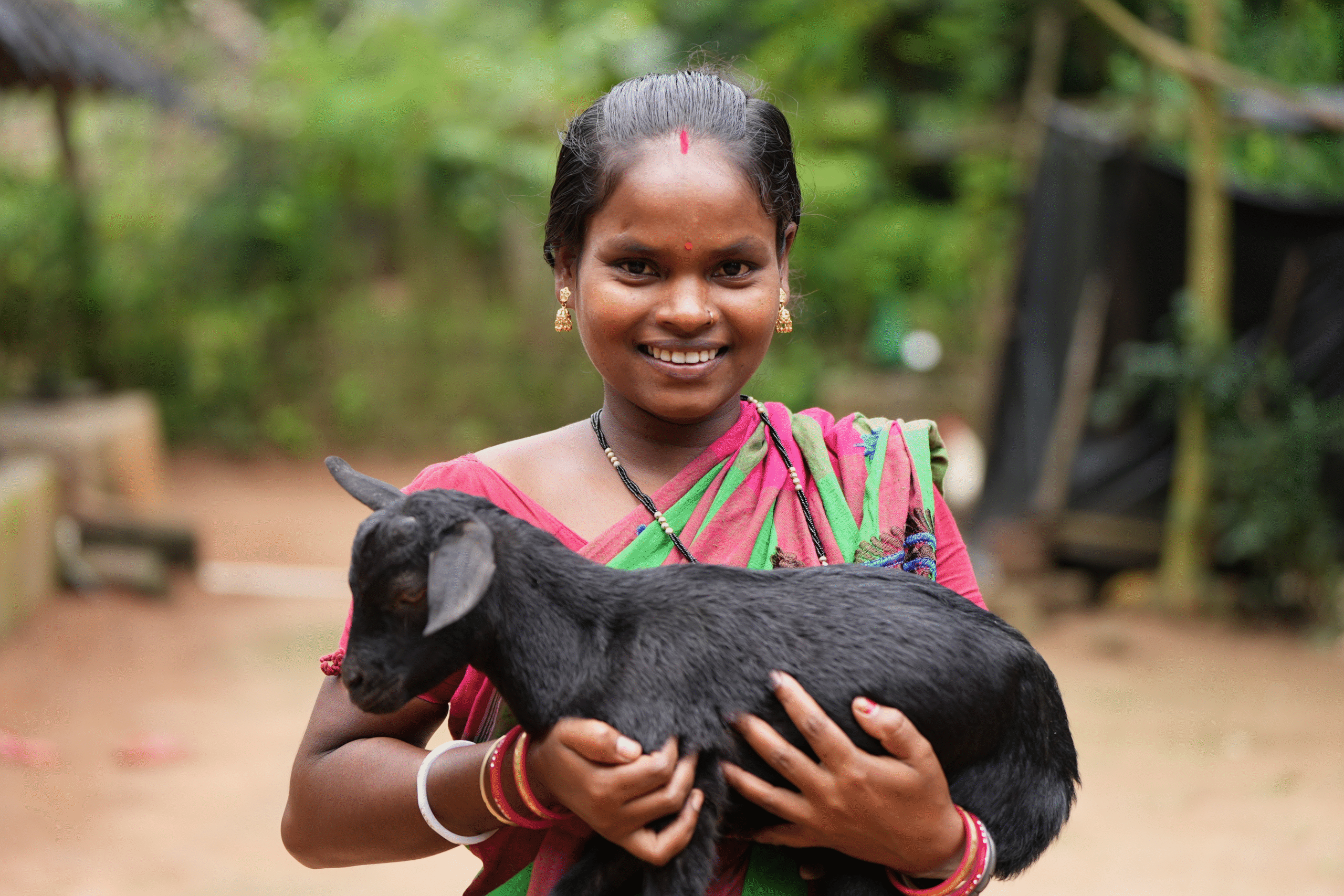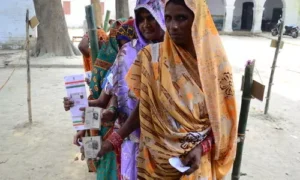Dhadgaon (Nandurbar), Maharashtra
Anita Vadvi, a healthcare provider at the primary health centre in the Bilgaon village said that she had seen many people die because of the delay in getting them to the healthcare facility.
“The 24 villages which are on the other side of the Udai river are cut off from this part of the Dhadgaon taluka and people have to trek for four hours in hilly terrain to reach the health centre. The problem is even worse during the monsoon season,” Vadvi told Gaon Connection.
As many as 12,000 Bhil tribal residents in the 24 villages of Dhadgaon taluka in Nandurbar district of Maharashtra have no access to basic facilities like healthcare, education, administration, livelihood, and communication. They remain cutoff as a bridge that can connect them to the ‘mainland’ is under construction for the past 15 years and yet to see the light of the day.
Boats are the only means of transportation. And during the monsoon season, these adivasi villages are marooned. According to the villagers, despite decades of electoral promises, nothing has changed.
“The bridge construction work which began almost 15 years ago is yet to be completed. The work is not happening at all. The contractors who were tasked with building the bridge dropped their equipment and left,” Ramesh Ganya, a teacher at a jeevanshala (a charitable school for tribal children) told Gaon Connection. Education is the worst affected in the area, he added.
Healthcare workers at the primary health centre in Rajbardi village tell the same story. The telephonic network is so bad that there are times even the news of someone’s demise in the far flung villages takes days to reach the relatives.
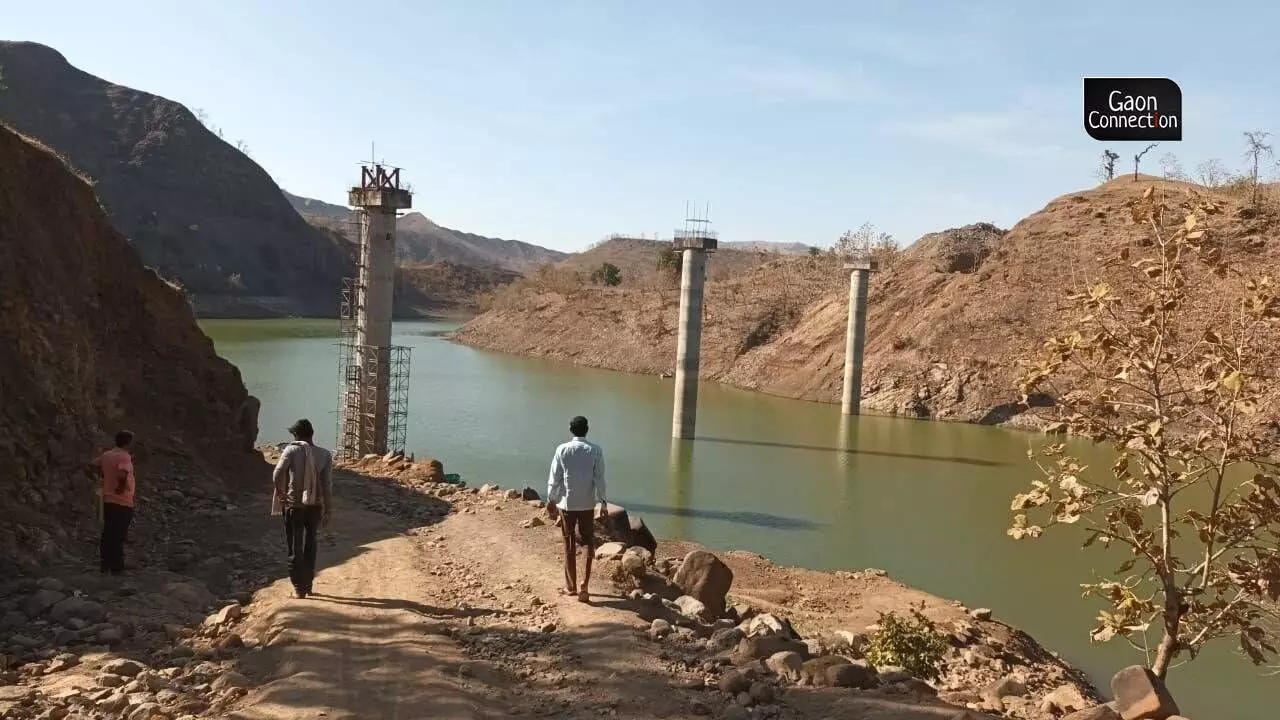
Despite several attempts to avail an explanation from the sub-divisional officer in the Maharashtra Public Works Department, the official did not yield a response.
“It took me two weeks to know about my father’s accident. The message that my family sent me reached me after two long weeks…,” Anjali Sathve, a general nursing midwife at the Rajbardi primary centre told Gaon Connection.
Also Read: Maharashtra: The ‘Jeevan Shalas’ Offer Education to Adivasi In Children in Nandurbar
In troubled waters
The situation is worse for women, children and the elderly.
“I have to cross the river on a boat to get to the PHC [primary health centre], and often there are pregnant women with me. I fear for their lives as the water in the river is so turbulent that we fear the boat may capsize,” Mangala Keertan, an ASHA (accredited social health activist) worker at the Bilgaon PHC, who is from Genda village, told Gaon Connection.
With the monsoons, even the meagre health services such as vaccinations and regular health check ups of sick and pregnant women come to a halt due to lack of transport. It is risky to travel by boat in those months, she added.
Amit Somvanshi, a surveyor from a private telecommunication company who had arrived in Nandurbar to survey the terrain, told Gaon Connection that it was almost impossible for an outsider to survive in the area.
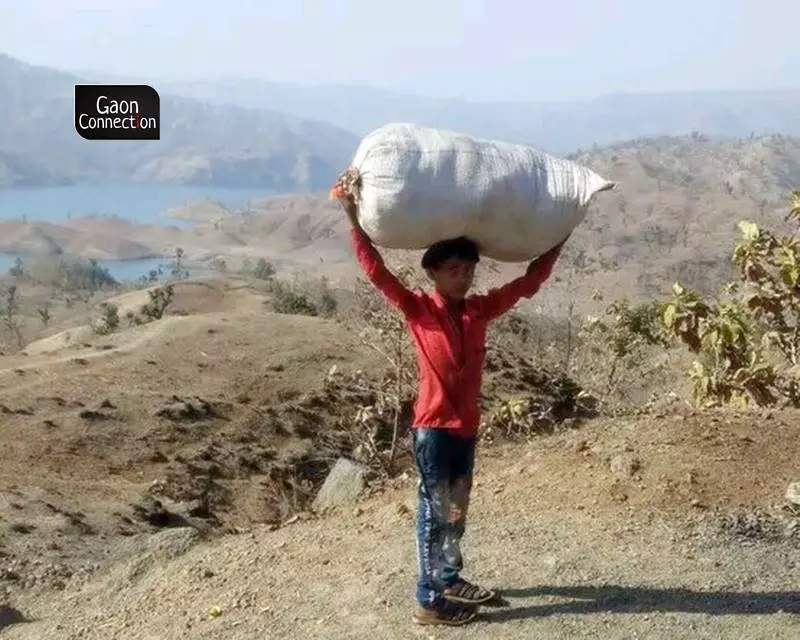
The trek to reach the government facilities on the other side of the river takes one full day.
“I have come here from Nasik. I have to survey the land to set up mobile phone towers in the area,” Somvanshi told Gaon Connection. “I find it difficult to load my bike on a boat and then cross the river. It is a very risky thing to do. Also, the roads are very bad here,” he added.
Also Read: Nandurbar’s Adivasi Fishers in Deep Water
Unfinished business
“We are living here because we have no choice. I don’t remember any government officer ever visiting this area ever. We just want a bridge to be constructed. It will make it easier for us to access basic facilities like livelihood and healthcare,” Shivavir Pawra, the head of Urdaya village, told Gaon Connection.
“The trek to reach the government facilities on the other side of the river takes one full day. The bridge is extremely crucial for the tribal inhabitants to get their fundamental rights,” Pawra added. Adding to the woes is the fact that the incoming water from the reservoirs of the Sardar Sarovar Dam has made crossing the river even more perilous.
Meanwhile, when Gaon Connection contacted Sewri Engineering Company Private Limited, the company which was tasked with the construction of the bridge, it stated that the government authorities failed in giving clearances for the construction.
“So, in nutshell it was the failure of various government authorities/ department to give us clearances to work without hindrances,” the company mentioned in an email.
“We are ready to complete the said work provided department understand and accept our geniune issue / for which several communication had been made (sic),” it added.
Additionally, despite several attempts by Gaon Connection to avail an explanation from the sub-divisional officer in the Maharashtra Public Works Department, the official did not yield a response.


